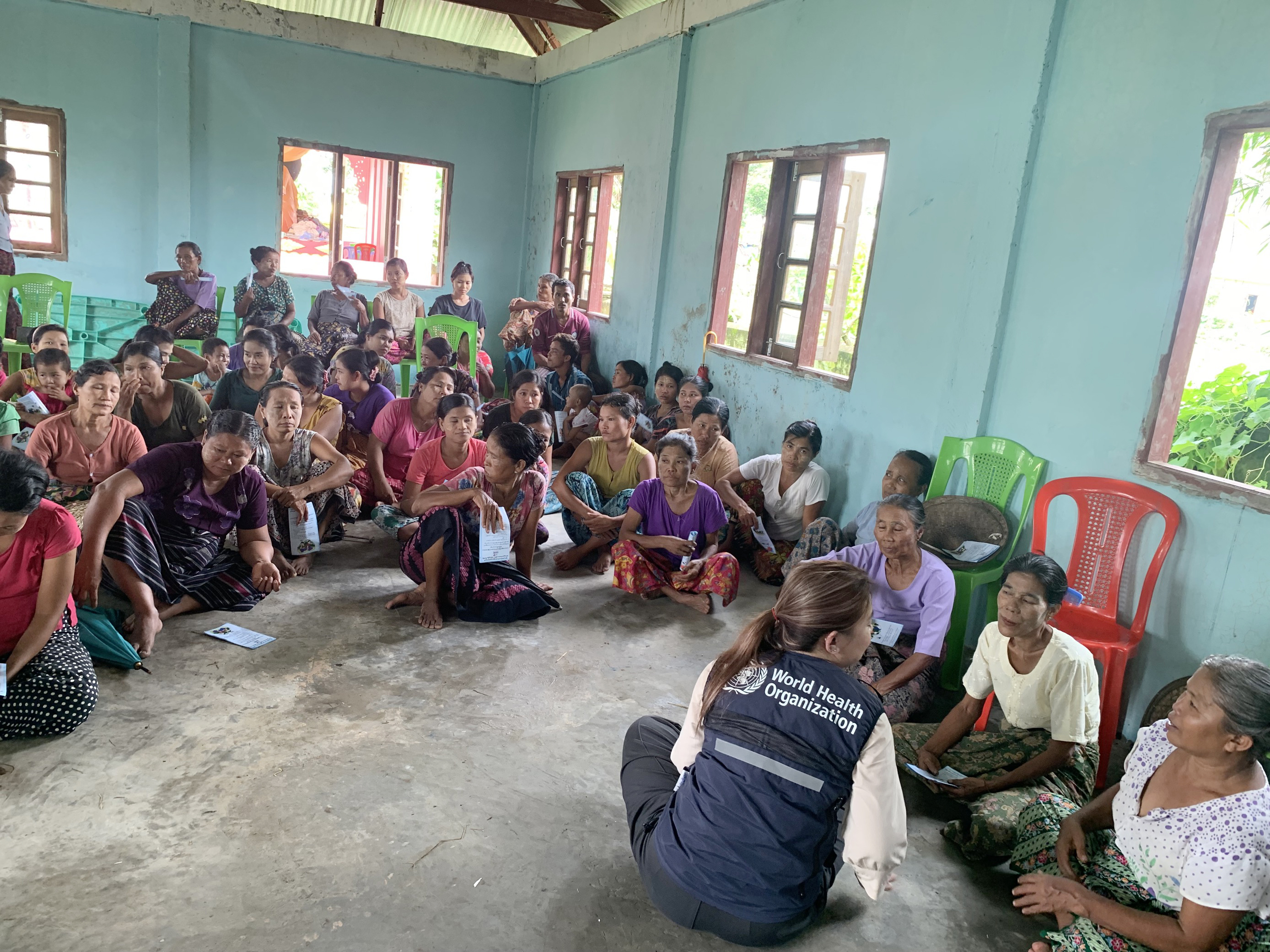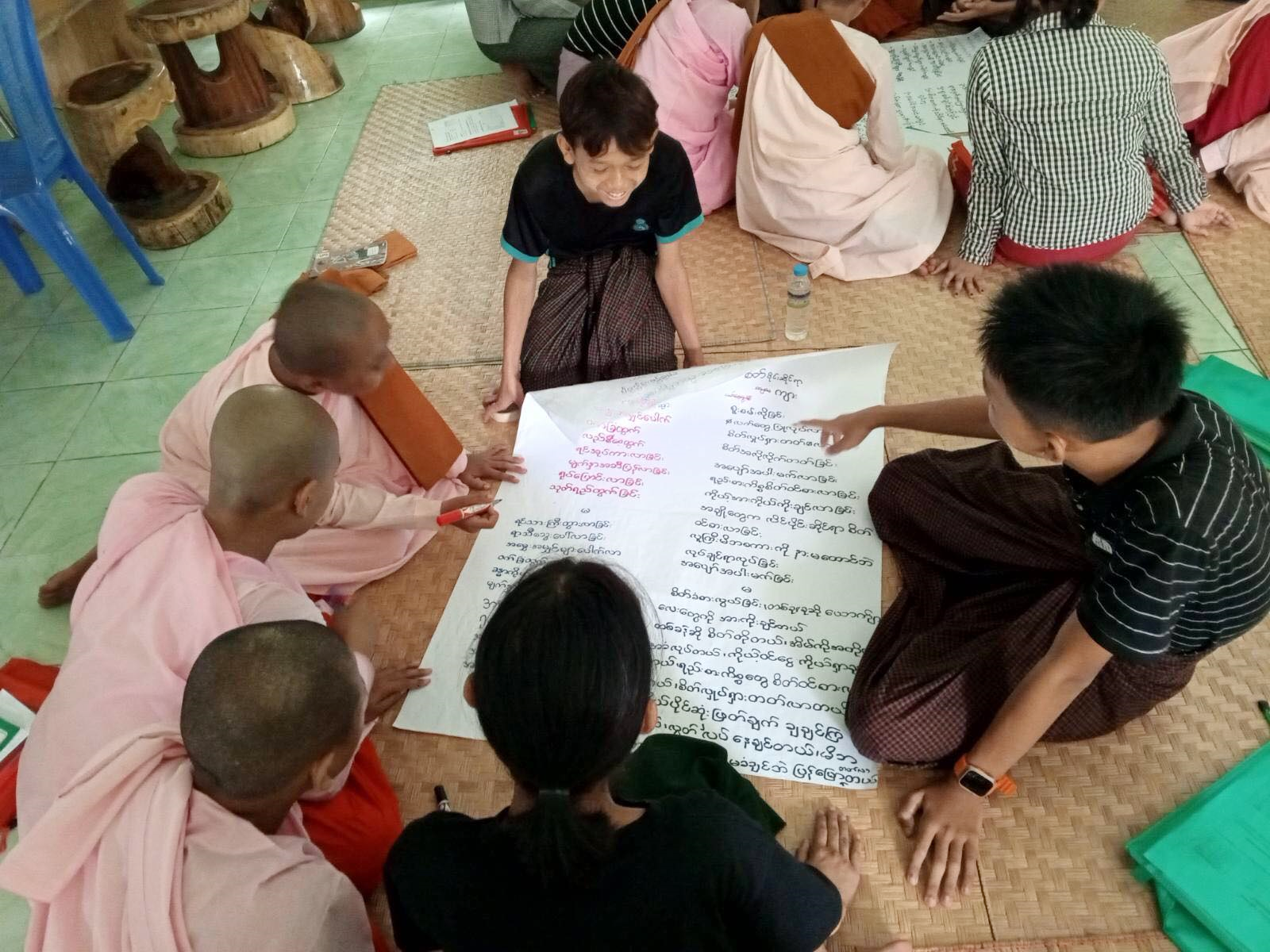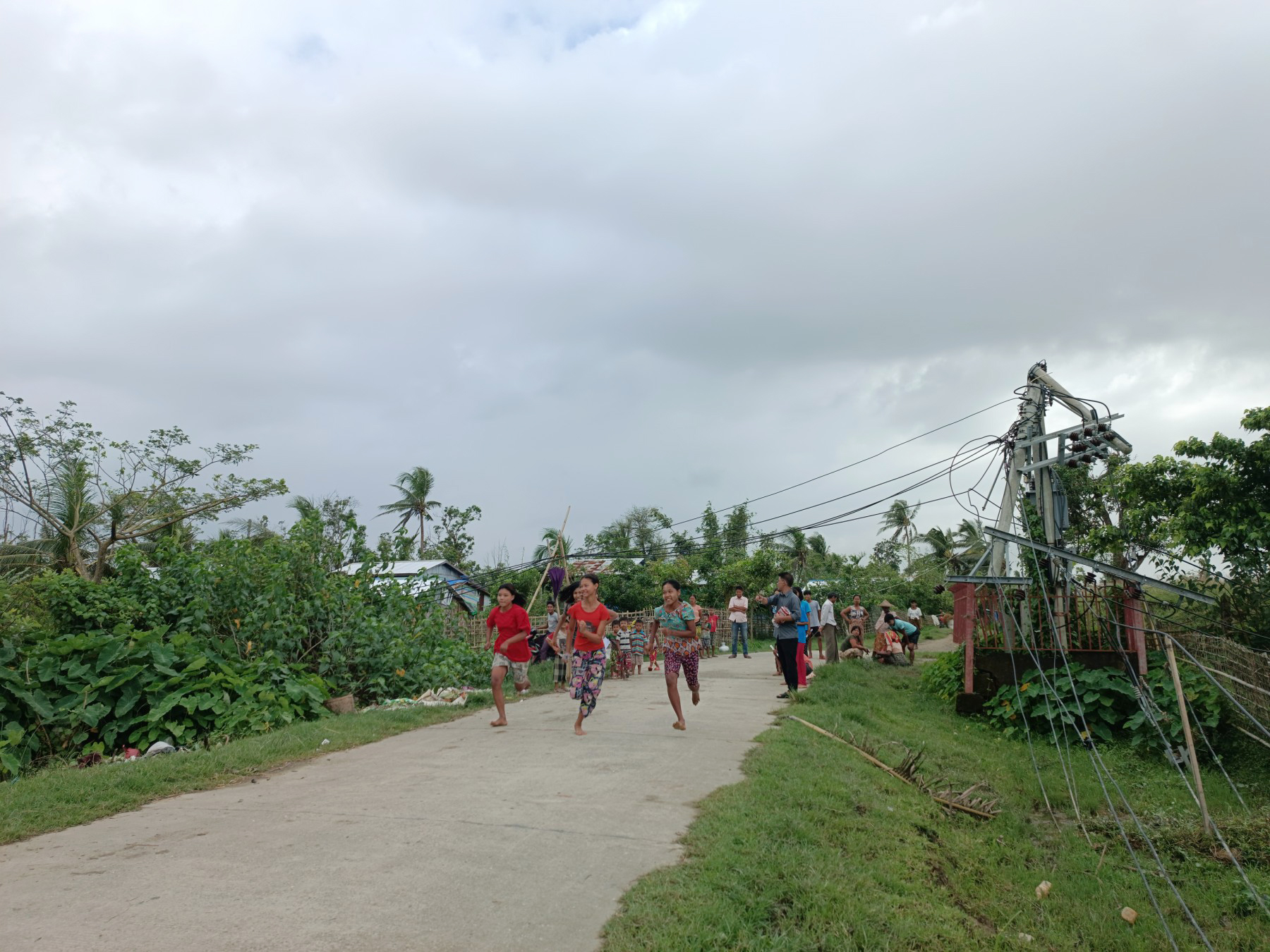
Mind Matters: Advancing Mental health in Myanmar through WHO’s MHPSS and School Health Initiatives
Overview
Myanmar has experienced the emergency situations such as armed conflicts, natural disasters and other humanitarian crises which can exacerbate the pre - existing mental health conditions and trigger new mental health issues. Globally, one in five (22.1%) people living in areas affected by conflict during the previous 10 years is estimated to have a mental health condition and these risks are heightened in older people and marginalised groups. Many individuals, including civilians, who were exposed to violence, displacement, and loss of loved ones, can lead to high rate of stress: prolonged exposure to stress hormones can have physical and psychological effects. Mental health services are often not prioritized in normal circumstances and the availability and accessibility of services can be disrupted in emergencies. Mental health services in Myanmar are highly centralized and there is very little integration of mental health into primary health care and no community approach.
 |
| Photo Credit: WHO Myanmar |
This leaves many people in rural region and vulnerable populations without adequate support. In Myanmar, to address these health issues, WHO provides support to one INGO with two CBOs financially and technically in implementing community based MHPSS (mental health and psychosocial support), consulting training contents for capacity building of responders (community volunteers and CBOs staff) in order to reduce the risk of suffering mental and psychosocial injury in Sittwe, Rathedaung and Ponnagyun in Rakhine State, as part of Mocha response. Moreover, with this MHPSS project, people who need mental healthcare are identified and referred to access mental health specialist service.
With this support as a good practice, WHO Myanmar is working to strengthen integrating mental health care into general health care service in a humanitarian setting. However, in the context of crises in Myanmar, building resilience is equally important to responding to mental health challenges.
 |
| Photo Credit: WHO Myanmar |
Thus, WHO Myanmar also supports promoting school health projects, in which mental health promotion is one of the key components, at 10 monastic education schools in Mandalay and Sagaing Regions. Support includes designing the manual to increase mental health knowledge, enhance emotional regulations, coping skills and decrease bullying in students aged 11 to 15 years. 20 focal teachers are provided in-person training that covered mental health awareness, coping skills, bully intervention, and how to provide basic psychosocial support to students who are in need. 150 students are also trained as peer educators who further conduct structured educational sessions for 2,000 students to disseminate accurate information, gain individual’s knowledge, attitude and behaviours for positive mental wellbeing.
Globally, around 20% of children and adolescents have a mental health condition. Exposure to adversity at a young age is an established preventable risk factor for mental disorder. Therefore, it is important for children and adolescents to acquire essential life skills that shape their mental wellbeing.
 |
| Photo Credit: WHO Myanmar |
Addressing mental health challenges in Myanmar, especially in the context of protracted crises and emergencies, requires a multi – faceted and collaborative approach involving various stakeholders, The WHO’s support is just one part of a broader effort to improve mental health services for Myanmar population. Regardless, WHO commits to ensure that mental health is part of the agenda in healthcare services to address both immediate needs and long – term resilience in the countries. In Myanmar, WHO has actively taken initiative in mental health promotion and integration of mental health into general health care and coordinate efforts and resources to address mental health challenges effectively.
